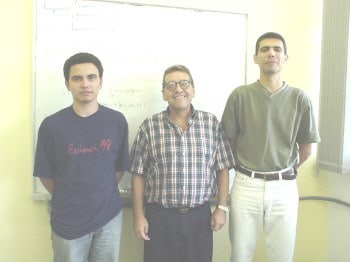In recent years researchers have applied techniques from statistical physics to topics as diverse as networks of comic-book heroes and voting systems in the European Union, so it should come as no surprise that physicists in Brazil have now turned their attention to the sport in which their country has won five world cups -- football.

Roberto Onody and Paulo de Castro took data from a CD-ROM released by the Brazilian football magazine, Placar, and analyzed different networks formed by the 127 teams and the 13411 footballers who played in the Brazilian championships between 1971 and 2002. The most important results, says Onody, are that the professional careers of Brazilian footballers appear to be getting longer and, less surprisingly, that more Brazilian players are transferring to international clubs than ever before. There is also, he says, greater segregation between large and small clubs, often driven by television coverage of the game (Phys. Rev. E 70 037103).
Onody and de Castro found that the mean number of goals per game scored by a team was 1.03, while the average number of teams for which a footballer has played is 1.37. Moreover, the probability that a Brazilian footballer has played for a given number of clubs, or has played a given number of games, displays an exponential decay, whereas the probability that he has scored a certain number of goals follows a power law.
The probability that a footballer has played a certain number of games showed an unexpected critical value at 40 games. According to Onody and de Castro, this indicates that after a player has become famous, it is easier for him to continue playing football. It also appears that the distance between players — the so-called degree of separation or small-world effect — in the networks is very short at only 3.29.
In 2001 physicists at Warwick University in the UK analysed the number of goals scored in domestic football games in more than 150 countries, and found that the home team tends to win by an average of 0.51 goals per game.



